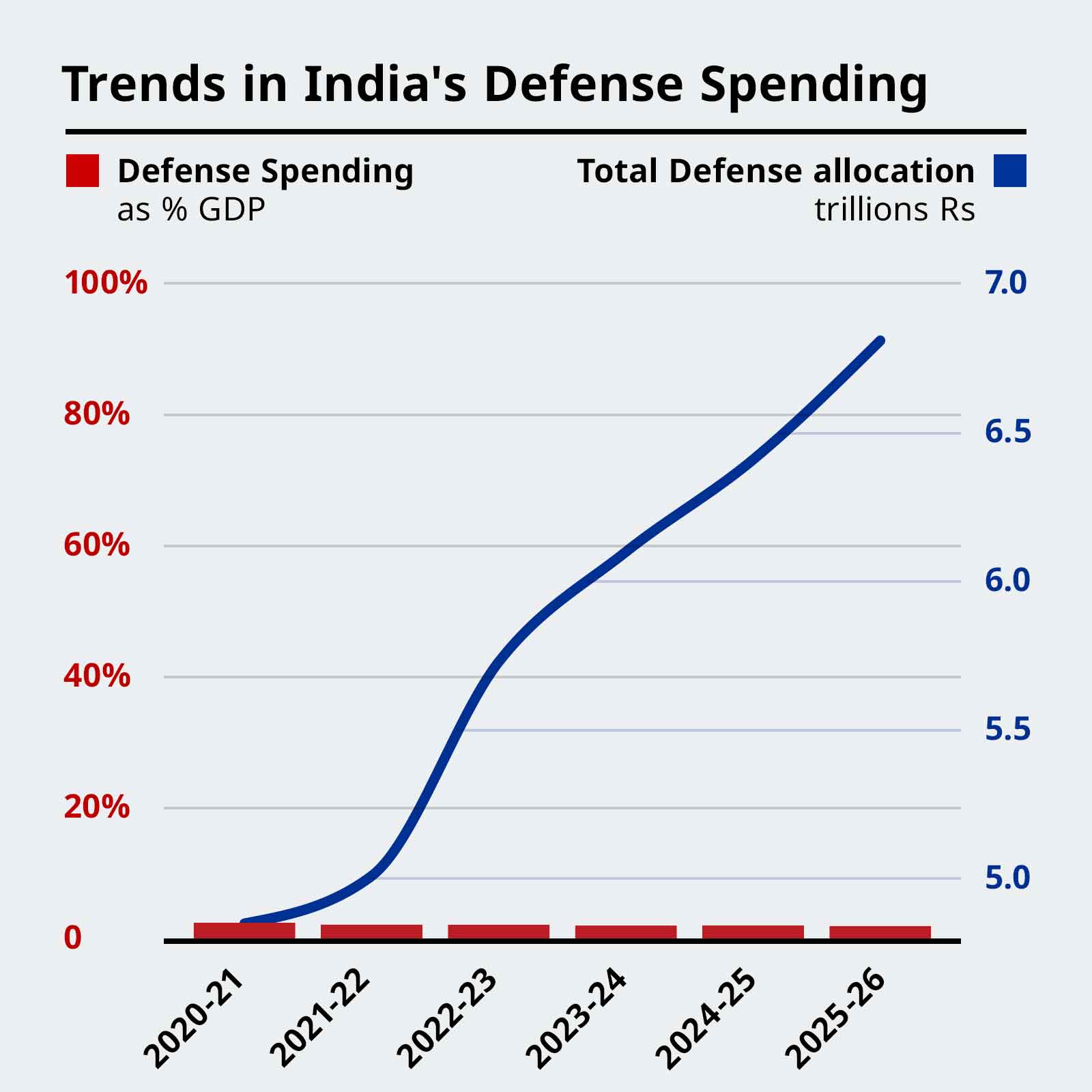| Welcome to the latest issue of Diplomat Brief. This week our top story analyzes the seachange in India’s approach to AI since the amazing success of China’s DeepSeek. We also have an interview with Nahid Islam, a key leader in Bangladesh’s July Uprising and the founder of the new National Citizen Party. |
| Story of the week |  | Economy India’s AI AwakeningWhat Happened: When China-based firm DeepSeek unveiled a world-leading AI model earlier this year, it was widely viewed as a “Sputnik moment.” Much of the analysis focused on the implications for China-U.S. competition, but that misses the way DeepSeek shook up the Global South’s approach to AI – especially in India. As researcher Rajiv Kumar writes for The Diplomat: “DeepSeek’s overnight success significantly reshaped New Delhi’s perception of the AI landscape, resulting in concrete steps aimed at strengthening its position in the global AI competition.” Our Focus: In India, DeepSeek sparked much soul-searching. It was perhaps taken for granted that Indian firms would lag behind U.S. tech giants, but the success of a newborn Chinese startup raises the question of why India couldn’t do the same. As a result, the government has now decided to put its weight behind making India competitive in the AI race, devoting not only funding but other resources (computing power, energy, data, etc.) to the AI startup scene. The goal is to develop India’s own homegrown foundational AI models, so that the country won’t be dependent on U.S. or Chinese firms for the technology of the future. What Comes Next: Beyond making apparent the gap between India and the technological leaders, DeepSeek’s sudden arrival on the scene also gave reason for hope. The Chinese company reached the cutting edge of AI using far fewer resources than the U.S. giants, showing such a feat is possible. As one Indian AI startup put it, “The AI arms race isn’t about money. It’s about hunger.” India’s government is showing that “hunger.” The question now is whether the results will follow. Read this story |
| Behind the News | INTERVIEW Nahid IslamNahid Islam, a leader of the protests that ousted Bangladesh’s prime minister last year and now the founder of the National Citizen Party (NCP), on his new party’s agenda for a new Bangladesh: “We are in favor of reforming the constitution and the electoral system so that a fascist regime cannot emerge again. Therefore, an election is not our immediate priority.” Read the interview |
| This Week in Asia | Northeast Asia South Korea (Still) Awaits Yoon Impeachment VerdictWhile it’s not a certainty, most reporting out of South Korea expects the Constitutional Court to issue its ruling on the impeachment of President Yoon Suk-yeol this week – possibly on Friday. Sound familiar? That’s because you read the same thing last week. The expected ruling didn’t arrive on March 21, but maybe March 28 will be the day. On Monday, the court did overturn the impeachment of Prime Minister Han Duck-soo, returning him to the acting presidency. The country is still waiting for a verdict on whether Yoon himself will be reinstalled in office. With dueling protests between anti-Yoon and pro-Yoon groups in the lead up to the ruling, the potential for political violence is riding high. How much longer will South Korea be stuck in suspense? Find out more | South Asia Pakistan Cracks Down on Baloch Protest MovementFollowing back-to-back major attacks by the separatist Baloch Liberation Army (BLA) earlier this month, Pakistan cracked down hard on the Baloch Yakjehti Committee (BYC), a peaceful protest movement demanding Baloch rights and an end to enforced disappearances. Pakistan faces extreme pressure both at home and abroad to prevent future attacks, and Islamabad is doubling-down on its security-centric response as a result. The BYC has long faced pressure from the state, ranging from forcibly disbanded protests to online attacks, but now the group’s founder, Dr. Mahrang Baloch, has been arrested, sparking angry demonstrations across the province. Things are likely to get worse in Balochistan before they get better. Find out more | Southeast Asia Indonesia Enhances the Military’s PowerIndonesians have taken to the street this week to protest the passage a suite of controversial amendments to the country’s military law, which they fear will erode checks on the power of the military. The changes to the 2004 military law, passed by parliament on March 20, expand the government’s ability to appoint serving military officers to civilian positions. Human rights groups fear that the amended law has effectively revived the doctrine that allowed the military to establish its dominance over Indonesia’s political system under Suharto’s New Order regime. The change is among the most controversial policies promulgated by President Prabowo Subianto, a former general who rose high in the ranks prior to Suharto’s fall from power in 1998, since he took office in October. Find out more | Central Asia Feminists Face Resistance in KazakhstanIn early March Aktorgyn Akkenzhebalasy became the second feminist activist in a week to be detained for a protest that took place last year related to the murder of Saltanat Nukenova by her husband, a former economy minister. The Saltanat case prompted Kazakhstan to criminalize domestic violence in 2024, reversing a 2017 decision to decriminalize it. While feminist activists in Kazakhstan face serious opposition – from the state and society alike – they persevere, helping women, advocating for change, and facing down their critics. Find out more |
| Visualizing APAC |  | Source: Union Budget 2025-26 and NSO Figures • Figures for 2024-25 and 2025-26 are estimates. While India’s defense budget has shown an impressive increase in real terms, it has been consistently under 2 percent of GDP. See the full picture |
| Word of the Week | Politics DwifungsiLiterally meaning “dual function” in Indonesian, it’s the doctrine that allowed the military to assume a dominant role in government under the former authoritarian leader Suharto. Find out more |
|  |


